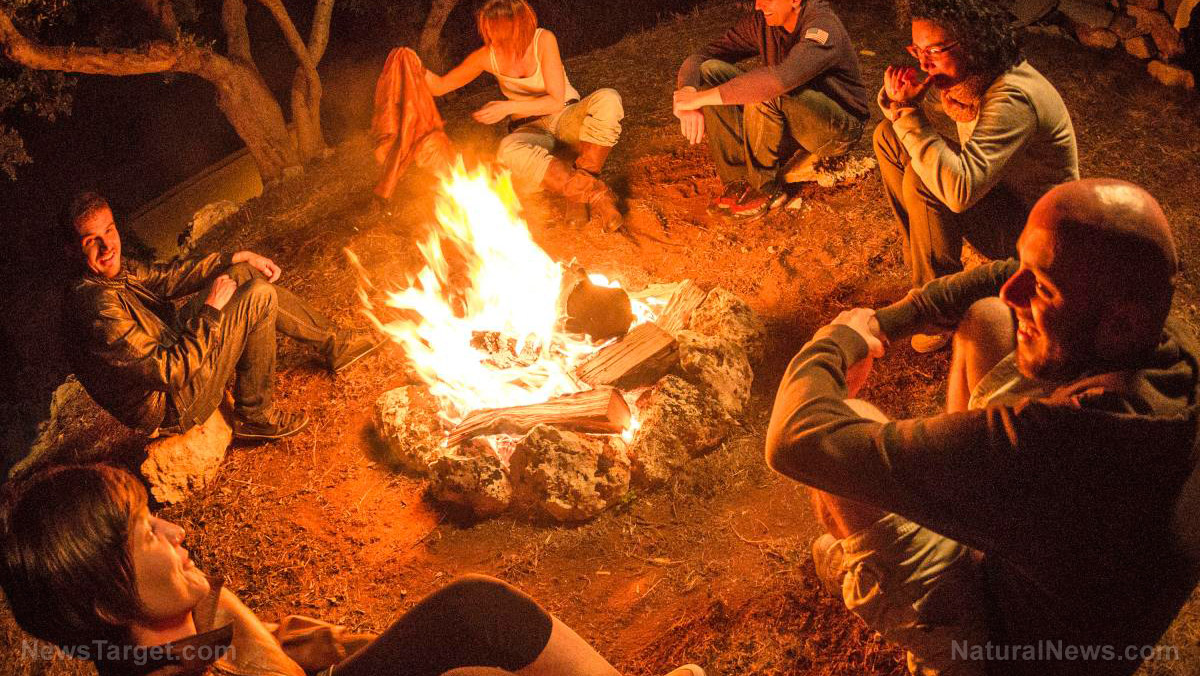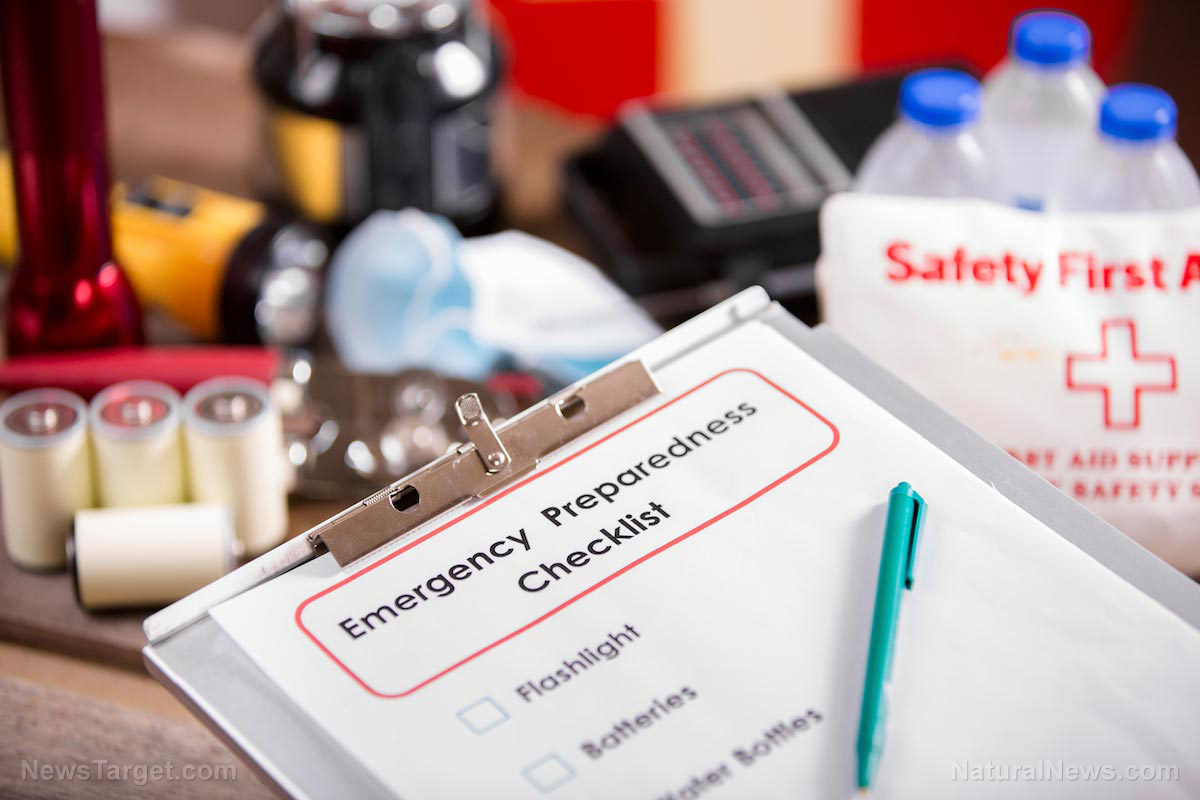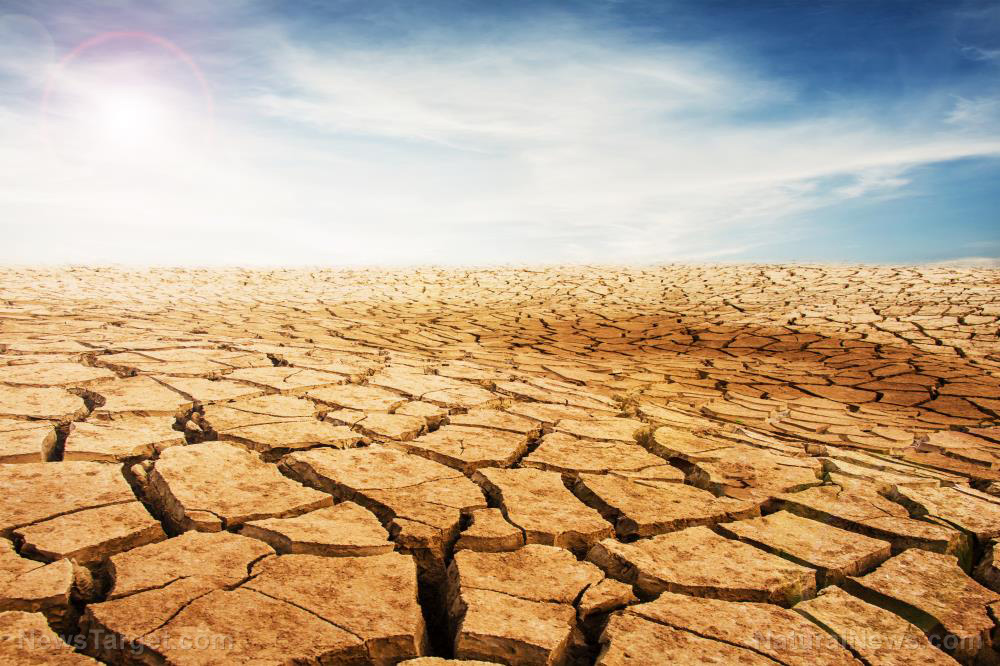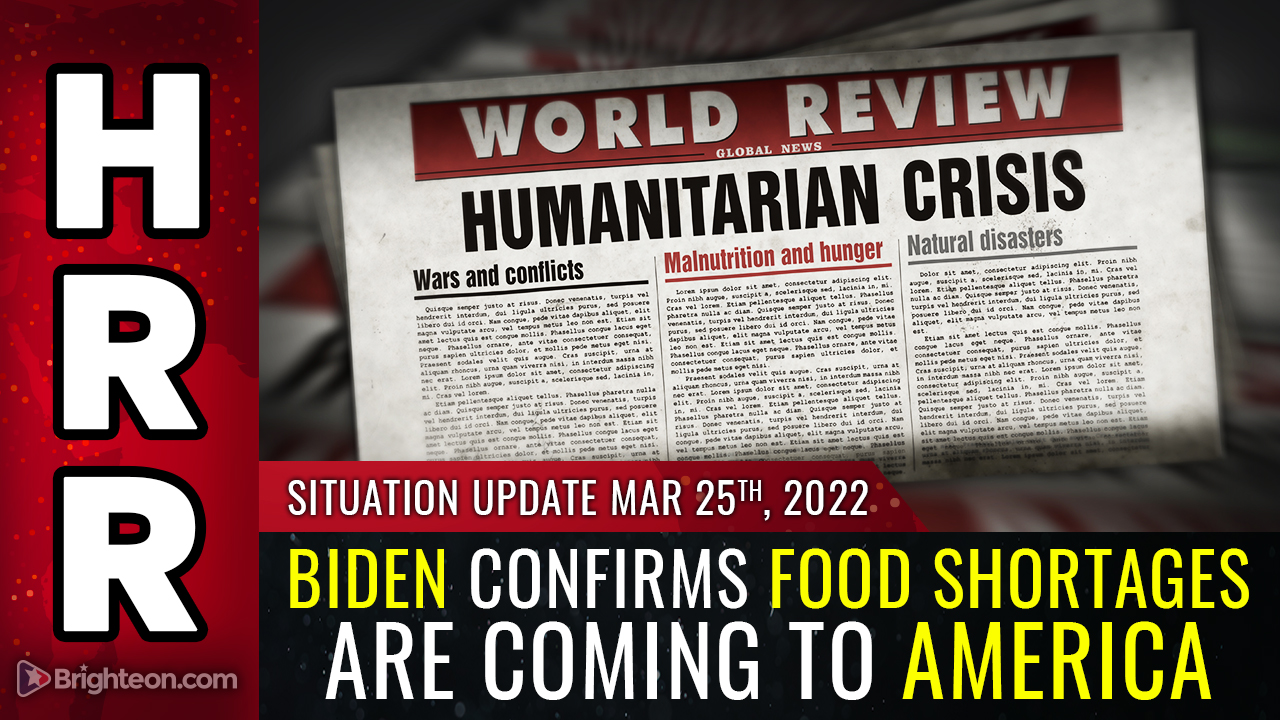Teamwork and preparedness: How to organize your survival community in a post-SHTF world
04/05/2022 / By Zoey Sky

As a prepper, you’re constantly preparing for the worst, like a natural disaster or a long-term power blackout. But what if disaster strikes and the world as you know it collapses? Do you have people you can trust in your survival community and do they have clear tasks in your post-SHTF world? (h/t to PreppersWill.com)
Things to consider after SHTF
Imagine a scenario where all modern luxuries are gone. There are no law enforcement and emergency agencies, food supply lines have collapsed and clean water, sewage services and sanitation are absent.
A scenario like this may be hard to imagine, but preppers know that it’s better to expect the worst and hope for the best. And when it’s time to restore order in the world, it’s better to be part of a tight-knit survival community than to be alone with your worries and supplies.
Here are two important things to remember after disaster strikes:
You can’t survive on your own
Even if you have mountains of food and ammo and gallons of water in your homestead, surviving after SHTF will be very difficult if you’re alone. Your supplies will run out and you will eventually need to interact with other survivors.
Even if you’re a skilled prepper, you will always have a blind spot or two. As a prepper, you also need to acknowledge that you’re not a superhero and that you don’t have infinite knowledge so you can’t do and know it all. (Related: 5 Tips to manage the mental stress of prepping.)
A community is key to your success and survival
You need to rely on others for long-term survival. Before SHTF, plan a survival community and know your role within it so you can also help other survivors.
This may be harder to do once disaster strikes, so prepare your “admission” before things go south. Start close to home and keep everyone on board and involved at all times.
Every community needs leadership and organization. But unlike other groups, a survival community needs to decide on a trustworthy leader.
One person can become a leader, but some communities may adopt different leadership structures with roles assigned to fit everyone’s experience. The larger the community, the more candidates you will need in this leadership structure.
Choose the right person for the job
If you become part of the group of leaders in your community, choose people who are highly knowledgeable in a certain assigned skill or task. They may have other tasks at hand, but their main priority remains to be the jobs they were assigned to.
And if you find the right people for the job, you need to make sure they are responsible and don’t abuse their power. For a peaceful community to succeed, everyone must be able to state their opinion when it comes to the well-being of the whole community.
Try not to keep posts occupied by the same people for more than a few years, and don’t give them full control indefinitely. A leadership election process needs to be put in place to keep peace within the community.
Assigning tasks in your survival community
A streamlined organization needs leaders assigned to various areas at all times to keep the community alive. If you’re part of a small group, leaders may take on multiple roles.
But if you’re planning for a bigger community, more people will need to be assigned to certain essential areas.
Below are the areas of expertise that need to be covered and how your leaders should manage them.
Food
A food leader or director must be responsible for managing and supervising these tasks:
- Inventory management and storage requirements.
- Rationing and using perishable and non-perishable foods.
- Organizing expeditions to supplement your food supply, such as leading hunting and fishing trips, trapping sessions and foraging expeditions.
- Taking care of agricultural tasks so vegetables and fruits are grown and preserved.
- Raising and taking care of livestock.
The food leader or director doesn’t need to know it all, but if you’re assigned this task, you need to gather the right people to help you do your job. Work with farmers, botanists, hunters, trappers, fishermen, zoologists, veterinarians and everyone who knows about food processing and preservation techniques.
Water
If you’re in charge of the water needs of the community, you will be responsible for these tasks:
- Managing the water inventory and storage requirements.
- Rationing and overseeing the proper use of potable water resources.
- Finding new water resources and ways to make them viable.
- Obtaining and having the means to provide water for the community.
- Maintaining and overseeing the safe handling, access, usage and disposal of graywater and wastewater.
- Working with the food leader and his assistants to utilize waste and graywater for agricultural purposes.
Before SHTF, the water director should look for plumbers, water treatment and purification workers, chemists, natural resource managers and wastewater management specialists for your survival community.
Shelter
The shelter leader will manage these tasks:
- Planning construction projects or structures for housing.
- Maintaining housing structures.
- Upholding safety and sanitation standards for all construction projects.
If you’re tasked with shelter for the community, you will need architects, engineers, electricians, woodworkers, masons, roofers, steelworkers, machine and vehicle operators, repairmen and construction contractors on your team.
Health
The health director will manage and oversee these tasks:
- Matters concerning the health, medical, hygiene and sanitation needs of the community.
- Taking care of all medical and dental requirements.
- Managing the emotional state of the members.
- Gathering and cultivating medicinal plants.
- Planning and leading scavenging or trading expeditions to cover immediate and long-term medical needs.
As a health leader, you need people with skills covering various levels of traditional, natural or holistic medicine practice for both body and mental needs. You also need to look for emergency medical technicians, search and rescue personnel, health and sex education instructors, midwives, pharmacists and professionals in veterinary and animal husbandry areas for pets or livestock.
If some people in the group have disabilities or health conditions that require medication or special tools and appliances, prepare for them before SHTF. Stock up on prescription glasses, oxygen tanks, insulin or wheelchairs for these members.
Security
The security leader will be responsible for these tasks:
- Ensuring the safety and security of all members and their property and belongings.
- Defending the community from external and internal threats.
- Performing law enforcement and ensuring a just punishment system for criminals.
- Establishing teams and assigning tasks for defensive/offensive action, apprehending and restraining criminals.
- Organizing scavenging trips.
- Teaching members about basic self-defense methods and how to conduct defensive/offensive drills.
If appointed security leader, you will need to work with people from law enforcement, firefighters, gunsmiths, warfighters and surveillance and security system experts.
Communications
The communications leader will be responsible for these tasks:
- Construction and maintenance of the infrastructure for internal and external communication.
- Keeping the community updated on all important matters within the group and the neighboring communities.
- Supervising communication channels and messages with external contacts.
- Organizing traditional print communication methods as needed.
- Organizing an internal, classified communication code.
The communications leader will need people with expertise in HAM and other long-distance radio operators and technicians, electronic and communication specialists and Morse code specialists.
General labor
The general labor leader will take care of the following tasks:
- Assigning people to tasks not covered in the areas listed above.
- Allocating members to replace workers in the above-listed areas and overseeing their progress and involvement.
- Finding and allocating people to certain areas of expertise as they see fit, depending on the skills of each worker.
- Finding ways to make everyone useful to the group and assigning tasks to help experts in various areas to improve the general workflow.
You may have to work with many people in the general labor category. Remember that not having a certain set of skills doesn’t make people less important than those on the other teams.
Preppers like you will be a valuable resource after SHTF and you must learn how to gather and grow them if you want to survive.
Before SHTF, figure out where you fit in and find your proper place in a survival community.
Watch the video below to learn how to prioritize your prepping resources for optimal survival when SHTF.
This video is from the Health Ranger Report channel on Brighteon.com.
More related stories:
SHTF tips: How to survive an EMP attack that brings down the power grid.
SHTF tips: How to survive a long-term supply chain crisis.
Survival tips: Dealing with depression after SHTF.
Sources include:
Submit a correction >>
Tagged Under:
Collapse, community prepping, disaster, homesteading, how-to, off grid, preparedness, prepper, prepping, prepping community, SHTF, survival, survival community, Survival Tips
This article may contain statements that reflect the opinion of the author
RECENT NEWS & ARTICLES
COPYRIGHT © 2017 DISASTER NEWS




















